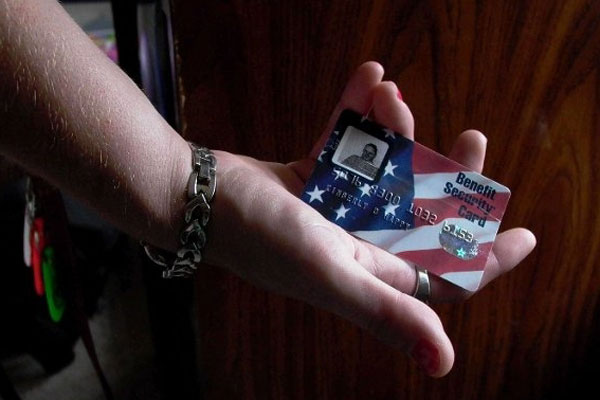Governor Sam Brownback (R–KS) signed a law last month that requires drug screening for Kansas recipients of Temporary Assistance for Needy Families (TANF). It joins Arizona, Florida, Georgia, Missouri, Oklahoma, Tennessee, and Utah as states with laws requiring some form of substance screening for welfare recipients.
A 2007 study by the Robert Wood Johnson Foundation discovered that 20 percent of TANF recipients self-report using illegal drugs—likely an undercount, according to the researchers. Five percent report drug abuse or dependence, and 6.5 percent report alcohol abuse.
If the goal of welfare is to promote self-sufficiency, the most basic first step, state lawmakers have argued, is stopping drug use that hampers their entry into the job market.
The Kansas law requires welfare applicants to take a medical drug test only if there is “reasonable suspicion” that the recipient is abusing drugs. If welfare recipients fail the drug test, then they are required to enroll in a drug treatment program and a job skills program and would lose benefits only if they fail to follow the treatment program. Those who are convicted of criminal drug use lose eligibility for five years, and repeat offenders become permanently ineligible (but a failing recipient’s children would continue to receive benefits through a designated third party).
The Texas Senate unanimously passed a similar drug testing bill for its TANF program this spring, and the Michigan House passed a comparable measure. The Alabama, Arkansas, Indiana, and Minnesota state legislatures have each taken up legislation on drug testing for various public assistance programs this year as well.
The most compassionate policy will create incentives to stop destructive behavior instead of allowing tax dollars to fuel it, promoting the basic responsibility necessary for future employment. As Heritage welfare experts Robert Rector and Katherine Bradley write:
Means-tested welfare assistance…should be given on the basis of reciprocal obligation. Taxpayers should provide support to those in need, and recipients in return should engage in responsible and constructive behavior as a condition of receiving aid. Requiring welfare recipients to stop using illegal drugs is a core element of reciprocal obligation.
In addition, taxpayers deserve to know their money is being used to help the downtrodden, not to enable harmful substance abuse. “As welfare spending approaches $1 trillion a year, taxpayers have a right to insist that their financial help not only goes to those who truly need it but that it’s not wasted on frivolous or self-destructive activities such as drug use,” Rector writes for U.S News & World Report.
States and the federal government should expand drug screening for programs providing taxpayer welfare support. Drug screening encourages those on drugs to make a positive change toward personal responsibility and independence.
